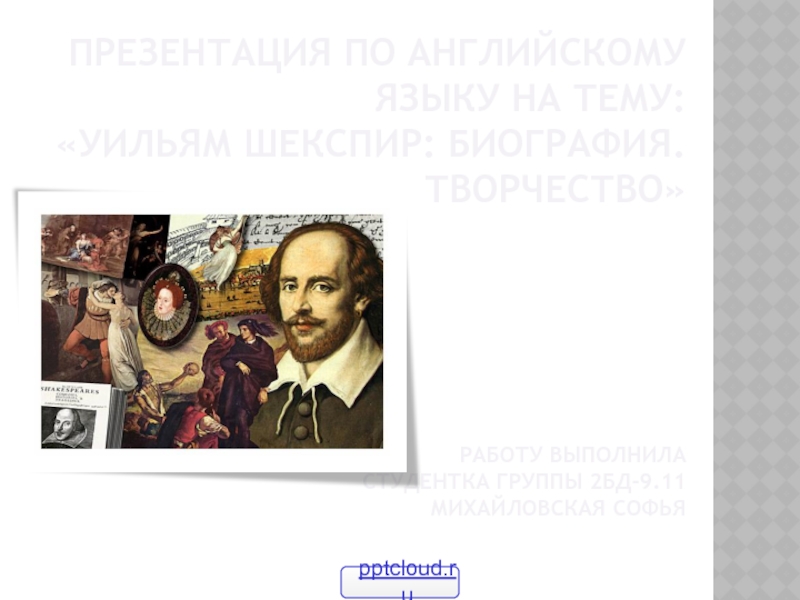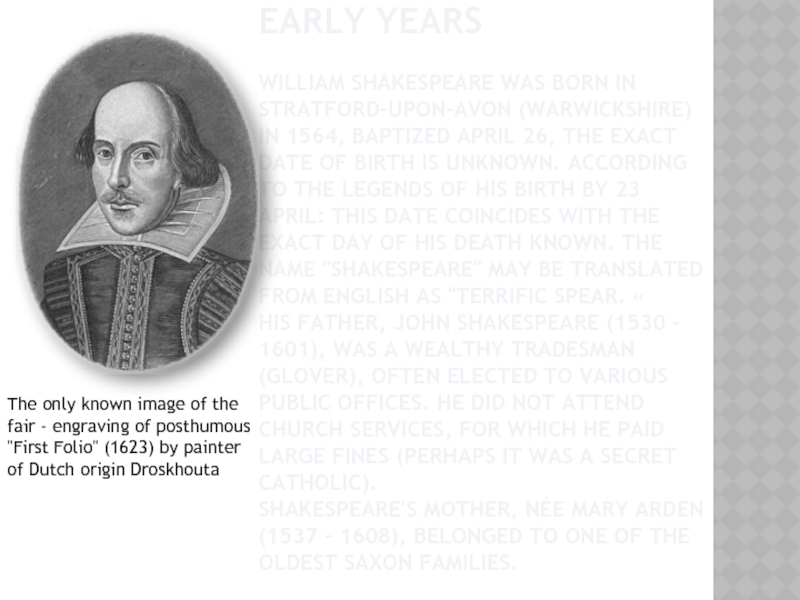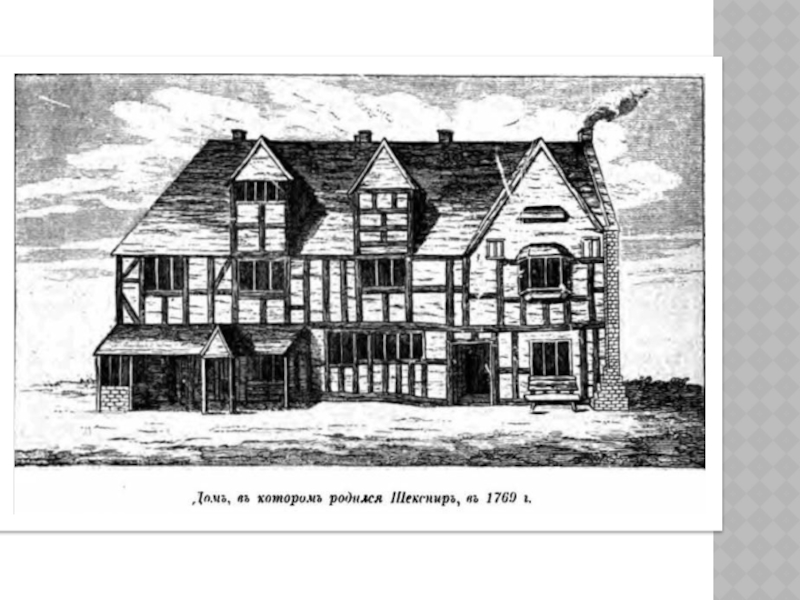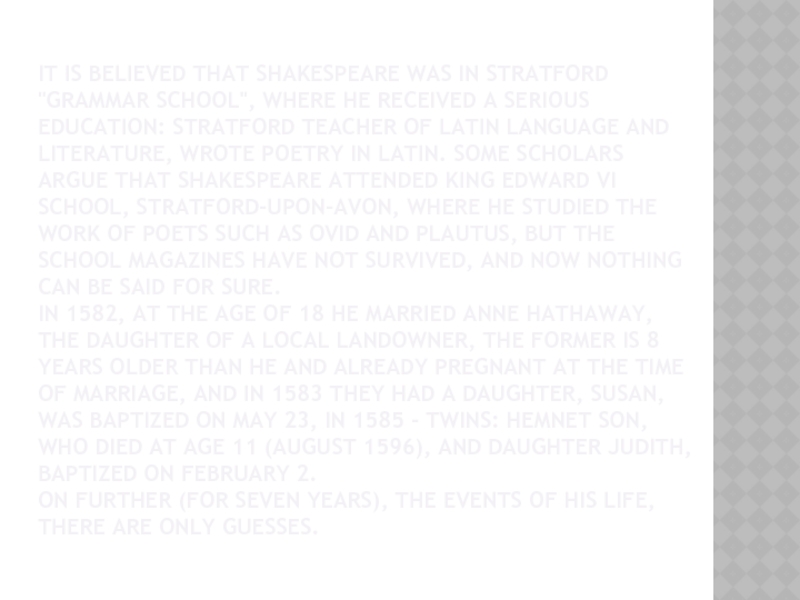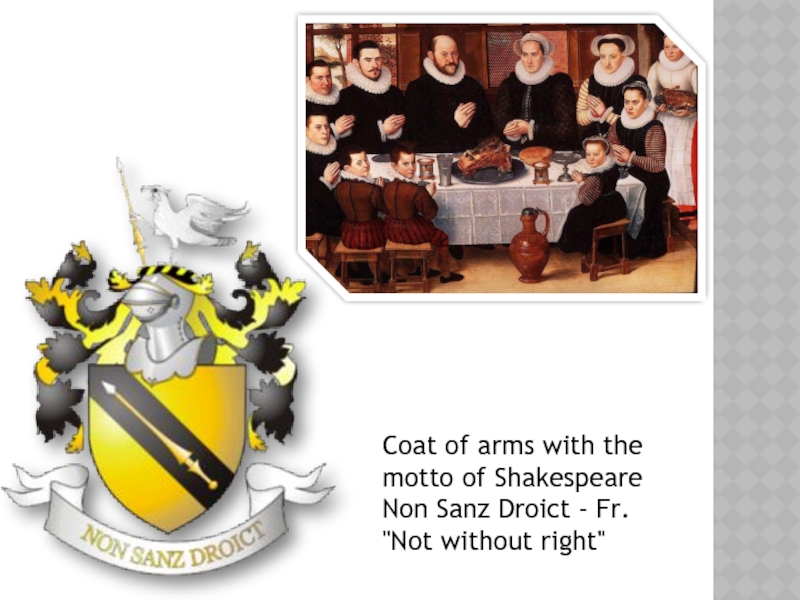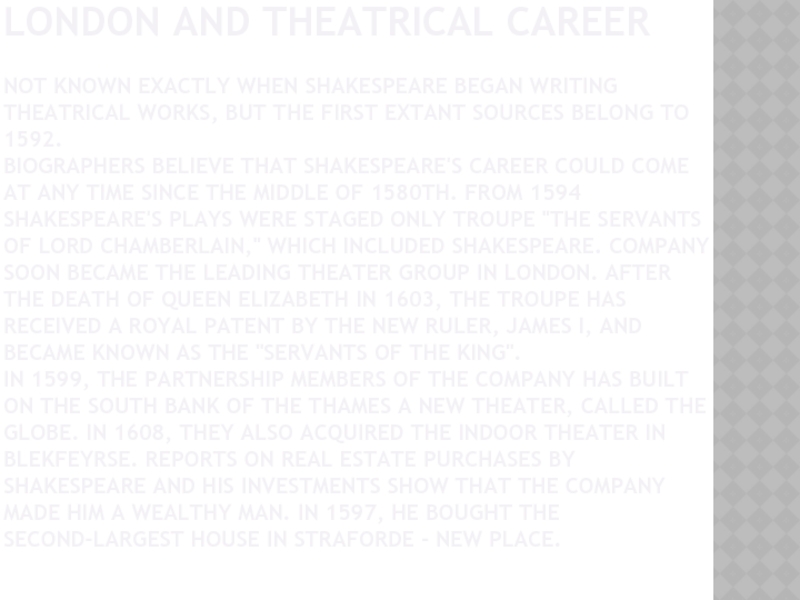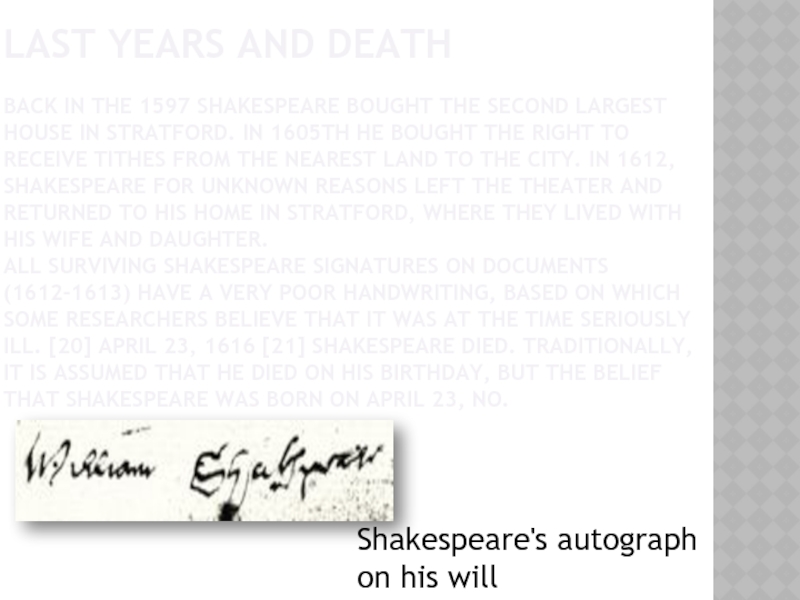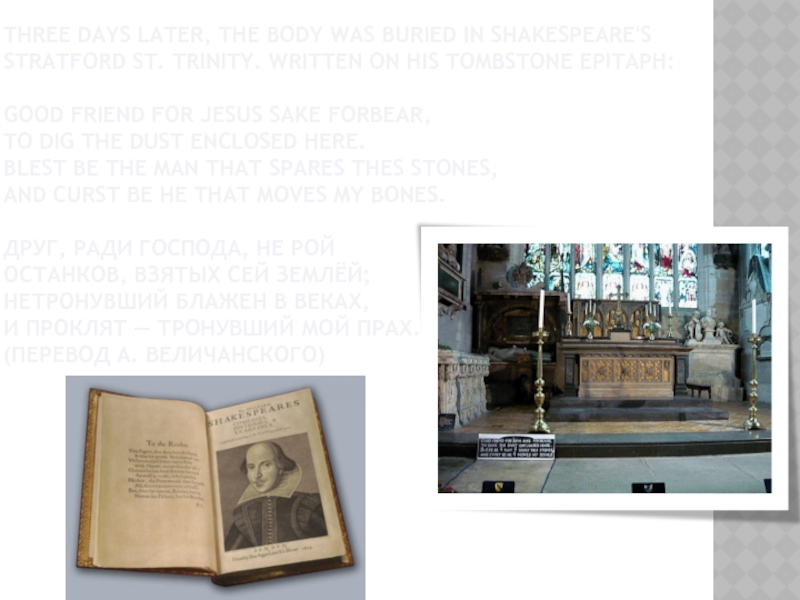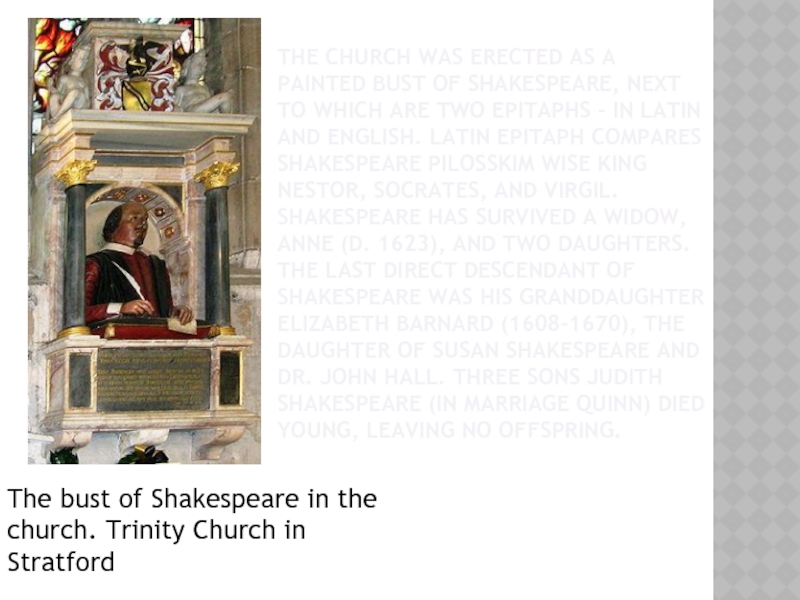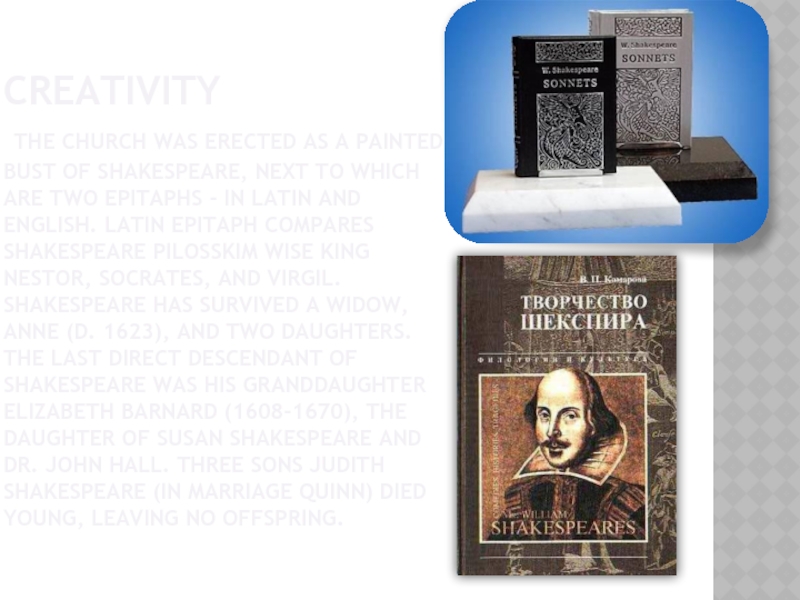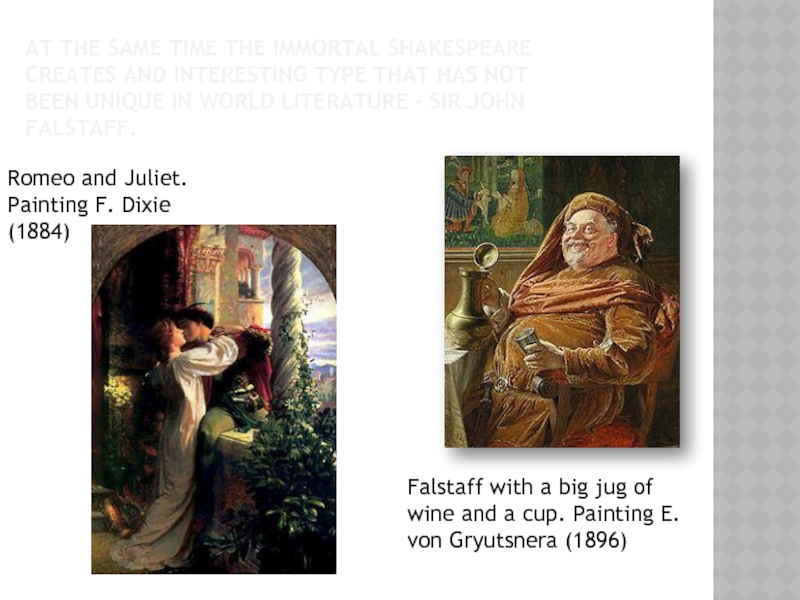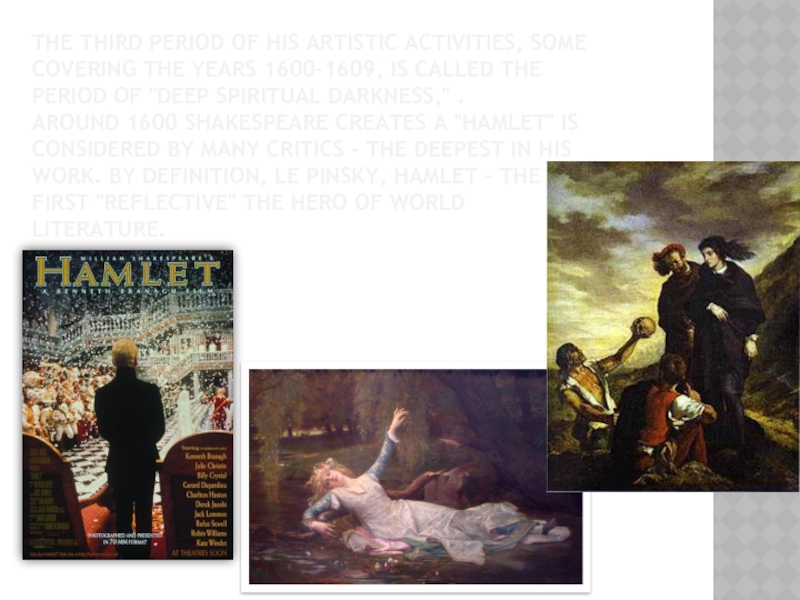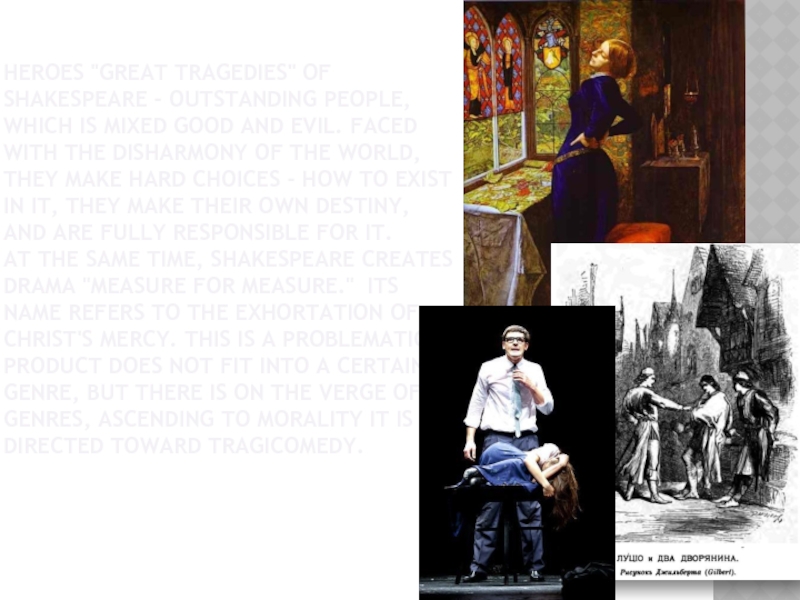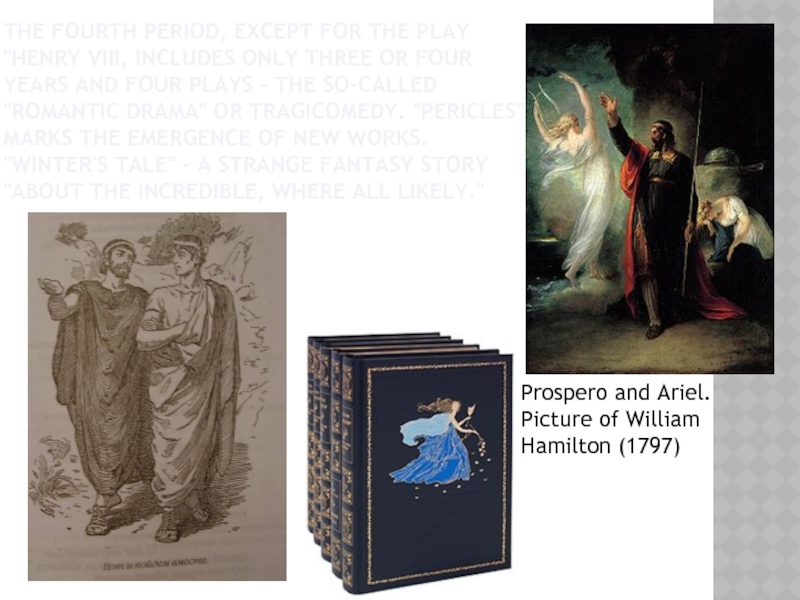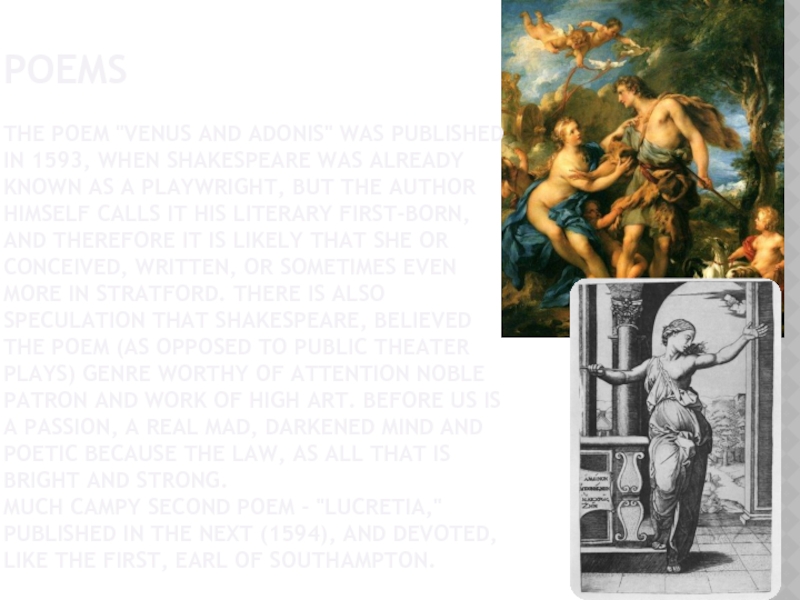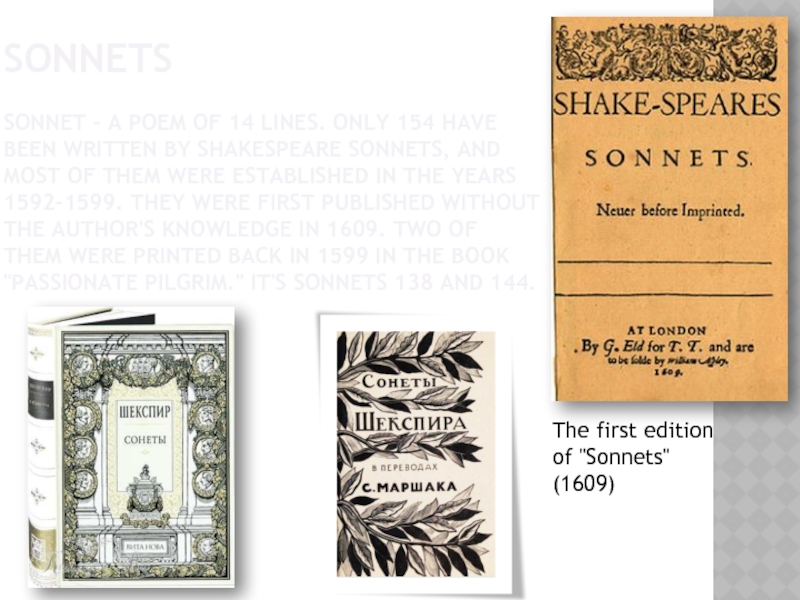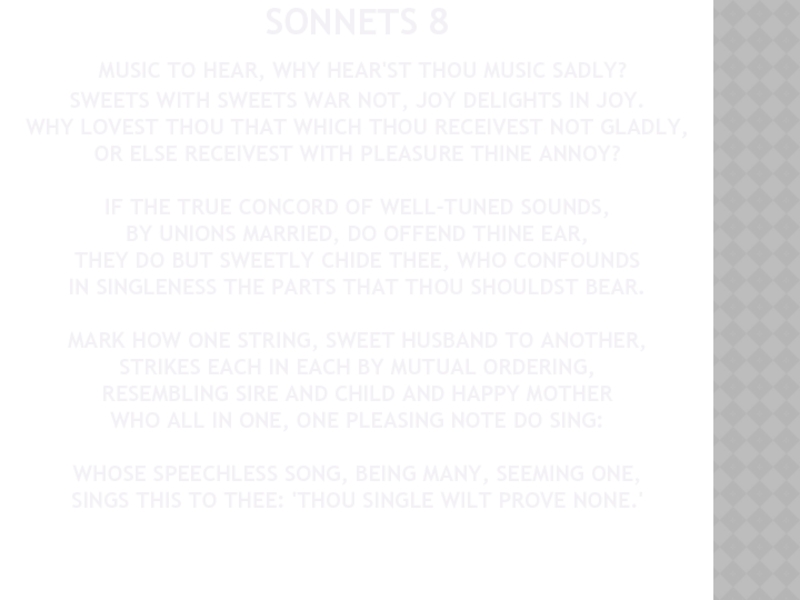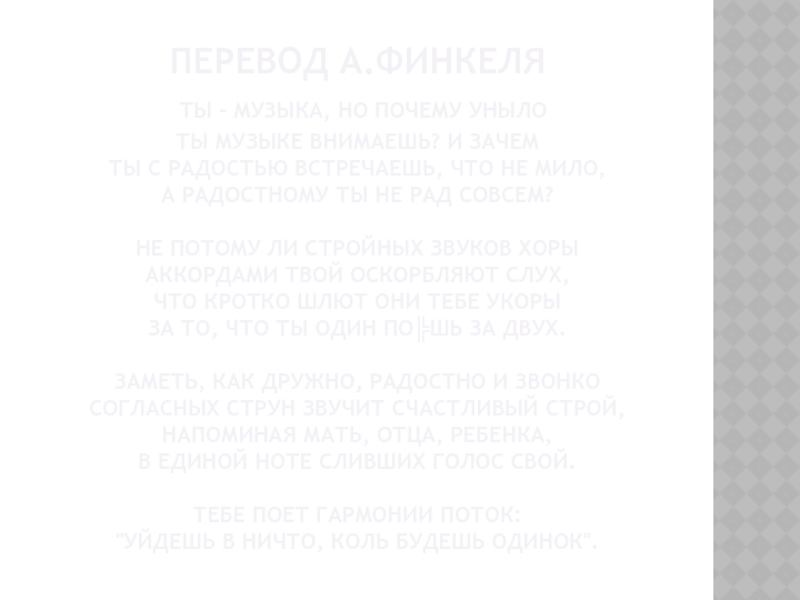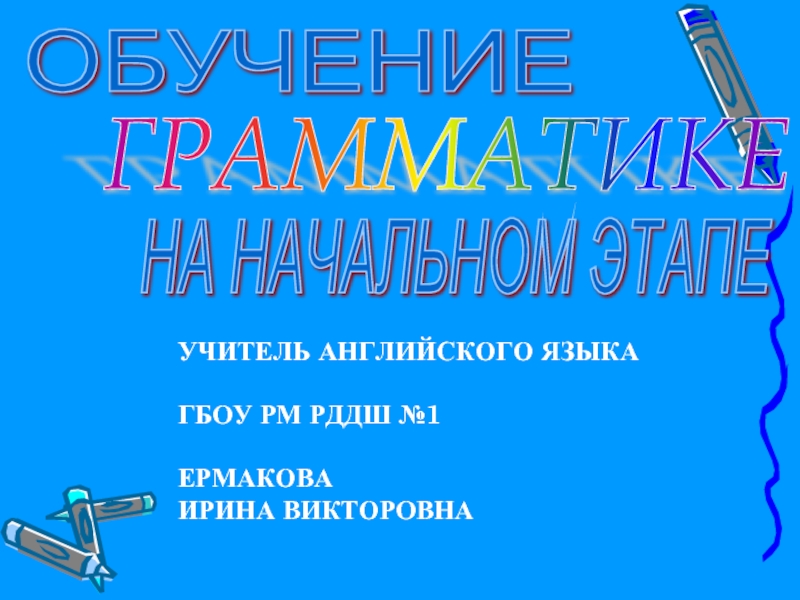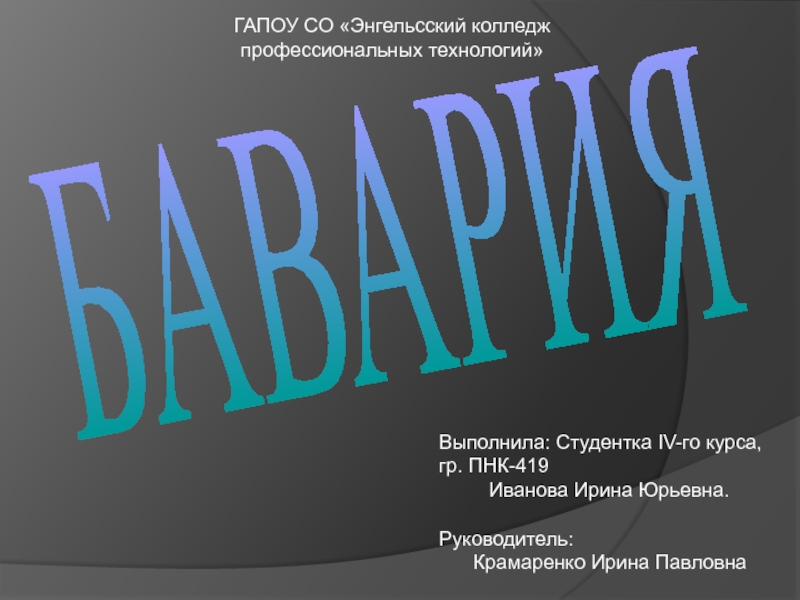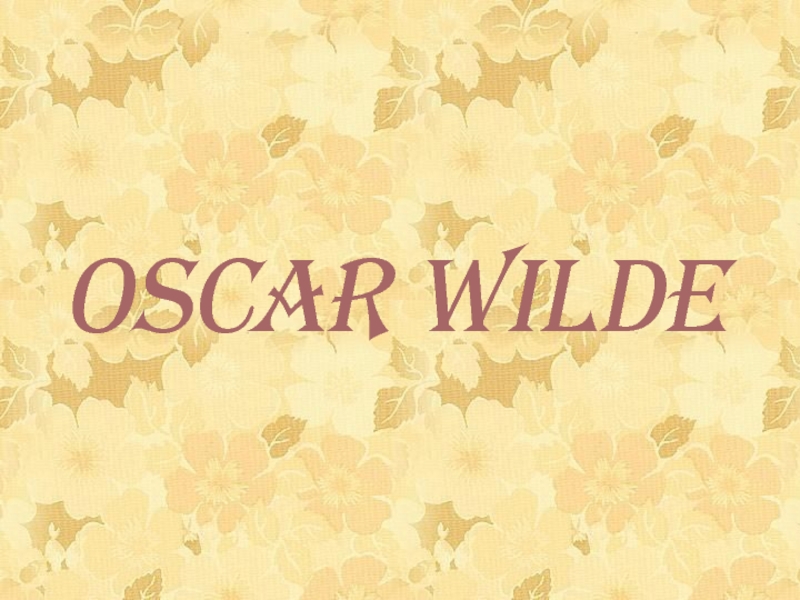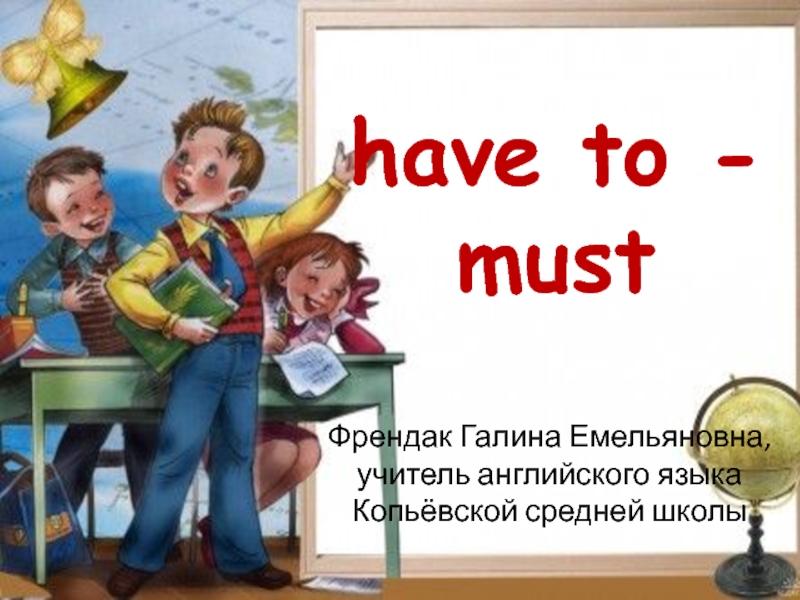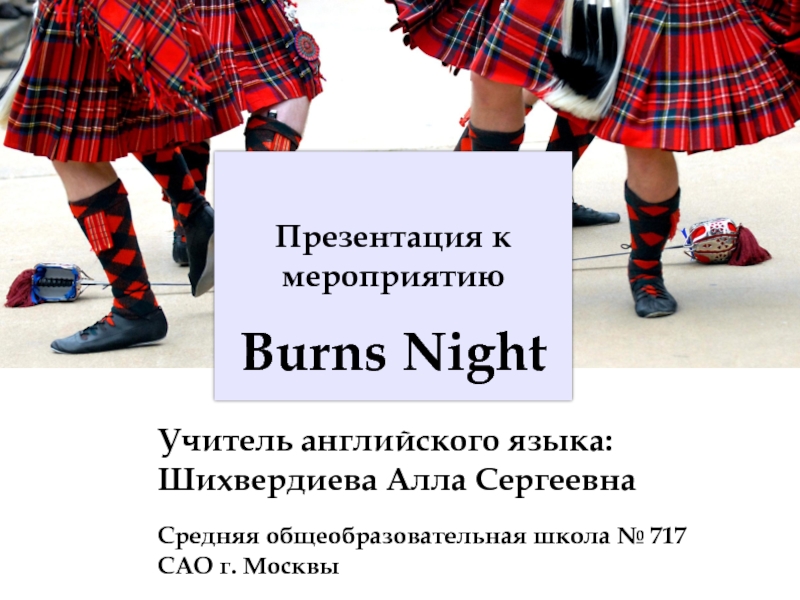Разделы презентаций
- Разное
- Английский язык
- Астрономия
- Алгебра
- Биология
- География
- Геометрия
- Детские презентации
- Информатика
- История
- Литература
- Математика
- Медицина
- Менеджмент
- Музыка
- МХК
- Немецкий язык
- ОБЖ
- Обществознание
- Окружающий мир
- Педагогика
- Русский язык
- Технология
- Физика
- Философия
- Химия
- Шаблоны, картинки для презентаций
- Экология
- Экономика
- Юриспруденция
Life of William Shakespeare
Содержание
- 1. Life of William Shakespeare
- 2. Early years William Shakespeare was born
- 3. Слайд 3
- 4. It is believed that Shakespeare was in
- 5. Слайд 5
- 6. Coat of arms with the motto of Shakespeare Non Sanz Droict - Fr. "Not without right"
- 7. London and theatrical career Not known
- 8. Recreated theater "Globe" in which Shakespeare worked troupe
- 9. Last years and death Back in
- 10. Three days later, the body was buried
- 11. The church was erected as a painted
- 12. Creativity The church was erected as
- 13. Drama The second period (1594-1600)
- 14. At the same time the immortal Shakespeare
- 15. The third period of his artistic activities,
- 16. Heroes "great tragedies" of Shakespeare - outstanding
- 17. The fourth period, except for the play
- 18. Poems The poem "Venus and Adonis"
- 19. Sonnets Sonnet - a poem of
- 20. Sonnets 8 Music to hear, why
- 21. Перевод С.Маршака Ты
- 22. Перевод А.Финкеля Ты - музыка, но
- 23. Скачать презентанцию
Слайды и текст этой презентации
Слайд 1Презентация по английскому языку на тему: «Уильям Шекспир: биография. творчество» работу выполнила
студентка группы 2бд-9.11
михайловская софья
Слайд 2Early years William Shakespeare was born in Stratford-upon-Avon (Warwickshire) in 1564,
baptized April 26, the exact date of birth is unknown.
According to the legends of his birth by 23 April: This date coincides with the exact day of his death known. The name "Shakespeare" may be translated from English as "terrific spear. « His father, John Shakespeare (1530 - 1601), was a wealthy tradesman (Glover), often elected to various public offices. He did not attend church services, for which he paid large fines (perhaps it was a secret Catholic). Shakespeare's mother, née Mary Arden (1537 - 1608), belonged to one of the oldest Saxon families.The only known image of the fair - engraving of posthumous "First Folio" (1623) by painter of Dutch origin Droskhouta
Слайд 4It is believed that Shakespeare was in Stratford "grammar school",
where he received a serious education: Stratford teacher of Latin
language and literature, wrote poetry in Latin. Some scholars argue that Shakespeare attended King Edward VI School, Stratford-upon-Avon, where he studied the work of poets such as Ovid and Plautus, but the school magazines have not survived, and now nothing can be said for sure. In 1582, at the age of 18 he married Anne Hathaway, the daughter of a local landowner, the former is 8 years older than he and already pregnant at the time of marriage, and in 1583 they had a daughter, Susan, was baptized on May 23, in 1585 - twins: Hemnet son, who died at age 11 (August 1596), and daughter Judith, baptized on February 2. On further (for seven years), the events of his life, there are only guesses.Слайд 7London and theatrical career Not known exactly when Shakespeare began writing
theatrical works, but the first extant sources belong to 1592. Biographers
believe that Shakespeare's career could come at any time since the middle of 1580th. From 1594 Shakespeare's plays were staged only troupe "The servants of Lord Chamberlain," which included Shakespeare. Company soon became the leading theater group in London. After the death of Queen Elizabeth in 1603, the troupe has received a royal patent by the new ruler, James I, and became known as the "Servants of the King". In 1599, the partnership members of the company has built on the south bank of the Thames a new theater, called the Globe. In 1608, they also acquired the indoor theater in Blekfeyrse. Reports on real estate purchases by Shakespeare and his investments show that the company made him a wealthy man. In 1597, he bought the second-largest house in Straforde - New Place.Слайд 9Last years and death Back in the 1597 Shakespeare bought the
second largest house in Stratford. In 1605th he bought the
right to receive tithes from the nearest land to the city. In 1612, Shakespeare for unknown reasons left the theater and returned to his home in Stratford, where they lived with his wife and daughter. All surviving Shakespeare signatures on documents (1612-1613) have a very poor handwriting, based on which some researchers believe that it was at the time seriously ill. [20] April 23, 1616 [21] Shakespeare died. Traditionally, it is assumed that he died on his birthday, but the belief that Shakespeare was born on April 23, no.Shakespeare's autograph on his will
Слайд 10Three days later, the body was buried in Shakespeare's Stratford
St. Trinity. Written on his tombstone epitaph: Good friend for Jesus
sake forbear, To dig the dust enclosed here. Blest be the man that spares thes stones, And curst be he that moves my bones. Друг, ради Господа, не рой Останков, взятых сей землёй; Нетронувший блажен в веках, И проклят — тронувший мой прах. (Перевод А. Величанского)Слайд 11The church was erected as a painted bust of Shakespeare,
next to which are two epitaphs - in Latin and
English. Latin epitaph compares Shakespeare pilosskim wise King Nestor, Socrates, and Virgil. Shakespeare has survived a widow, Anne (d. 1623), and two daughters. The last direct descendant of Shakespeare was his granddaughter Elizabeth Barnard (1608-1670), the daughter of Susan Shakespeare and Dr. John Hall. Three sons Judith Shakespeare (in marriage Quinn) died young, leaving no offspring.The bust of Shakespeare in the church. Trinity Church in Stratford
Слайд 12Creativity The church was erected as a painted bust of
Shakespeare, next to which are two epitaphs - in Latin
and English. Latin epitaph compares Shakespeare pilosskim wise King Nestor, Socrates, and Virgil. Shakespeare has survived a widow, Anne (d. 1623), and two daughters. The last direct descendant of Shakespeare was his granddaughter Elizabeth Barnard (1608-1670), the daughter of Susan Shakespeare and Dr. John Hall. Three sons Judith Shakespeare (in marriage Quinn) died young, leaving no offspring.Слайд 13Drama The second period (1594-1600) Around 1595 Shakespeare created one of
the most famous of his tragedies - "Romeo and Juliet"
- the story of human development in the struggle with external circumstances for the right to love. He stressed lyricism and dramatic action, reinterpreted and enriched the characters, created poetic monologues that reveal the inner feelings of the main characters thus transforming an ordinary product into a Renaissance poem about love. This special type of tragedy, lyrical, optimistic, despite the death of the main characters in the final. Their names have become synonymous designation highest poetry of passion. Around the year 1596 dates back to one of the most famous works of Shakespeare - "The Merchant of Venice." The play contrasts the power of money over a man and the cult of friendship - an integral part of life harmony.Слайд 14At the same time the immortal Shakespeare creates and interesting
type that has not been unique in world literature -
Sir John Falstaff.Romeo and Juliet. Painting F. Dixie (1884)
Falstaff with a big jug of wine and a cup. Painting E. von Gryutsnera (1896)
Слайд 15The third period of his artistic activities, some covering the
years 1600-1609, is called the period of "deep spiritual darkness,"
. Around 1600 Shakespeare creates a "Hamlet" is considered by many critics - the deepest in his work. By definition, LE Pinsky, Hamlet - the first "reflective" the hero of world literature.Слайд 16Heroes "great tragedies" of Shakespeare - outstanding people, which is
mixed good and evil. Faced with the disharmony of the
world, they make hard choices - how to exist in it, they make their own destiny, and are fully responsible for it. At the same time, Shakespeare creates drama "Measure for Measure." Its name refers to the exhortation of Christ's mercy. This is a problematic product does not fit into a certain genre, but there is on the verge of genres, ascending to morality it is directed toward tragicomedy.Слайд 17The fourth period, except for the play "Henry VIII, includes
only three or four years and four plays - the
so-called "romantic drama" or tragicomedy. "Pericles" marks the emergence of new works. "Winter's Tale" - a strange fantasy story "about the incredible, where all likely."Prospero and Ariel. Picture of William Hamilton (1797)
Слайд 18Poems The poem "Venus and Adonis" was published in 1593, when
Shakespeare was already known as a playwright, but the author
himself calls it his literary first-born, and therefore it is likely that she or conceived, written, or sometimes even more in Stratford. There is also speculation that Shakespeare, believed the poem (as opposed to public theater plays) genre worthy of attention noble patron and work of high art. Before us is a passion, a real mad, darkened mind and poetic because the law, as all that is bright and strong. Much campy second poem - "Lucretia," published in the next (1594), and devoted, like the first, Earl of Southampton.Слайд 19Sonnets Sonnet - a poem of 14 lines. Only 154 have
been written by Shakespeare sonnets, and most of them were
established in the years 1592-1599. They were first published without the author's knowledge in 1609. Two of them were printed back in 1599 in the book "Passionate Pilgrim." It's Sonnets 138 and 144.The first edition of "Sonnets" (1609)
